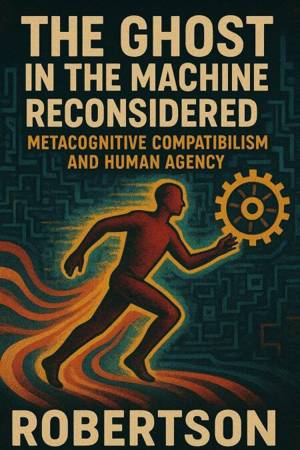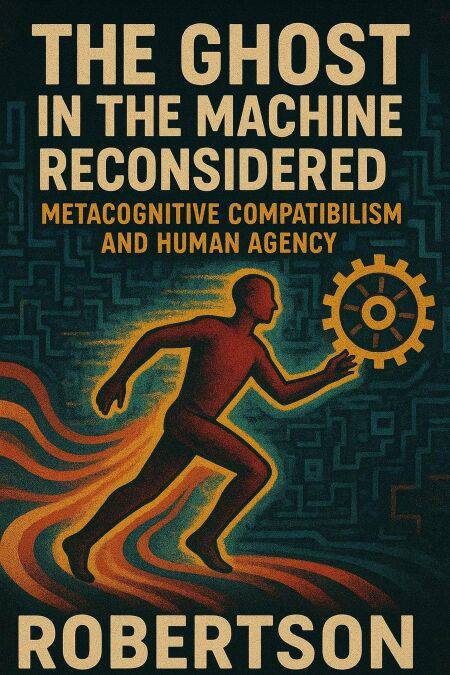
- Afhalen na 1 uur in een winkel met voorraad
- In januari gratis thuislevering in België
- Ruim aanbod met 7 miljoen producten
- Afhalen na 1 uur in een winkel met voorraad
- In januari gratis thuislevering in België
- Ruim aanbod met 7 miljoen producten
The Ghost in the Machine Reconsidered: Metacognitive Compatibilism and Human Agency E-BOOK
Joshua RobertsonOmschrijving
What if freedom isn't the absence of causation, but conscious participation in it?
For centuries, philosophy has been trapped in an impossible choice. Either we possess supernatural free will that defies natural law, or we are sophisticated machines whose sense of agency is an elaborate illusion. Both answers fail to capture what actually happens when humans systematically change their behavior through conscious effort.
The Ghost in the Machine Reconsidered demolishes this false dichotomy by revealing human agency as nature's most sophisticated achievement. The capacity for recursive self-organization enables genuine self-creation through entirely deterministic mechanisms.
Drawing on cutting-edge neuroscience, evolutionary psychology, and rigorous philosophical analysis, Joshua Robertson introduces the concept of metacognitive compatibilism. This framework recognizes that while all mental events occur within deterministic systems, the hierarchical structure of human consciousness creates unprecedented possibilities for systematic self-modification. We become free not by escaping causation, but by participating consciously in the causal processes that shape our development.
Through vivid examples and uncompromising logic, Robertson demonstrates how temporal scaffolding operates through natural mechanisms while creating genuine novelty in behavioral possibilities. By utilizing present cognitive resources to construct future decision environments, we exercise agency through a sophisticated understanding of how deterministic processes work. The person who breaks destructive relationship patterns, the community that redesigns institutions to support human development, and the species that consciously directs its own cognitive evolution all demonstrate this capacity in action.
This framework transforms our understanding of moral responsibility, moving beyond backward-looking questions about ultimate desert toward a forward-looking assessment of capacities for systematic self-modification. It reveals practical implications for legal systems, educational institutions, therapeutic practices, and collective governance of technological development.
Most profoundly, it reveals that the ghost haunting the machine was never a supernatural intervention or a mechanistic illusion. It was nature's capacity for conscious self-transformation through recursive processes.
Specificaties
Betrokkenen
- Auteur(s):
- Uitgeverij:
Inhoud
- Taal:
- Engels
Eigenschappen
- Productcode (EAN):
- 9798232574062
- Verschijningsdatum:
- 12/10/2025
- Uitvoering:
- E-book
- Formaat:
- ePub

Alleen bij Standaard Boekhandel
Beoordelingen
We publiceren alleen reviews die voldoen aan de voorwaarden voor reviews. Bekijk onze voorwaarden voor reviews.









